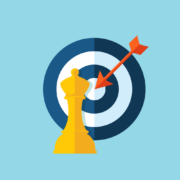Is Search Engine Submission Necessary?
The simple answer is no – search engine submission isn’t necessary. The majority of search engines nowadays (most notably Google) crawl and index pages by following links. Using that logic, a single inbound link from any already-indexed page will identify your page to the engine. Subsequently, if that page links to other pages within your site, they will also be indexed… and so on.
For this reason, inbound linking is very important. In fact, acquiring back-links may be the most important of SEO. In theory though, a website owner shouldn’t have to ’scout’ or ‘hunt’ for links. If the presented content is of interest, useful, and/or important, there is a natural tendency among web users to link to information. This is the basis for the Google PageRank algorithm.
With all due respect, submitting your site to the search engines can’t hurt. Plus, it only entails about 5 minutes of added work assuming you only submit to the big guys. And once is enough… you don’t need to submit your site more than once. It doesn’t help or get your site crawled any quicker or more often.
It should be noted that submitting your site to Google, Yahoo, MSN, and many others doesn’t cost a fee. Many SEO companies assert that you need to pay to be indexed. This isn’t the case and I would stay away from these companies. They are money hungry and aren’t looking out for your best interest.
Would you ever consider going on a vacation across the country without bringing a map? It is hard enough to find your way in some places with a map. How hard would it be if you tried this adventure without one? Yet, this is exactly what people do every single day in the online world. They tried to build their own businesses online without having a roadmap to success. Then, after months or years of just wandering around online, they give up in frustration and quit. They walk away saying that the Internet doesn’t work for them. The reason it didn’t work is that they didn’t pick up a map and follow it!
You don’t have to end up lost in the online shuffle. Below I will give you ten steps to help you map out your course and get you started in the right direction. It isn’t everything that you need to know by any stretch of the imagination, but it will give you a basic foundation to build upon.
Consider it your beginner’s map to Internet marketing profits.
1. Choose a targeted market
The biggest mistake most people make when starting a business is that they choose a product and then try to find people who want to buy it. If that is the direction you are starting from on your journey, then you are going the opposite direction from your destination. Wise businesses operate from a different concept. They pick a market first, and then they pick a product those people are searching for. In other words, instead of trying to find leads to sell their product to, they find targeted leads and then ask them what they are wanting to buy.
Don’t even consider starting a business until you know exactly where you are going to get your leads from. Think targeted customers first. Then, you can come up with a product for those individuals. Would you rather have 1,000 hits a day at your site of a general audience OR 10 hits a day of people who are desperate and willing to pay any price to buy your products? If you are smart, you will choose the people who are ready to buy!
2. Develop a Product
Next, you need to develop a product or service for this market. Don’t just jump on the bandwagon of affiliate programs when you come to this step. There are three major ways to selling a product online:
a. You create your own exclusive product.
This is the best opportunity you have. If you develop your own product, you can pick it’s price, sell reprint rights to others, set up an affiliate program, etc. Don’t tell me you can’t do this. Tens of thousands of innovative entrepreneurs have used their own information products to get their careers started. You can to.
Throughout your life, I am sure that there is something you have learned that you can share in a How-To product. Maybe you know someone else who has the right knowledge for a How-To product and you could offer to help them create a product if you both shared the rights to it. Don’t just jump past this opportunity and say it can’t be done.
b. You buy the rights to a product or you JV for an offline product.
You can buy the rights to successful products for $500 – $20,000. If someone else has created a product that you know your targeted market is interested in, offer them a large up-front fee for the rights to it. This way you can get your own product and never have to pay a penny in royalties. You can also search through magazines your targeted market reads and look for products people are selling. Then, give them a call and ask for the exclusive Internet rights to their product for a certain percentage of the profits or an up-front fee.
c. You join an affiliate program.
If you are just starting out online, this can be a good choice. You do have to keep in mind though that it doesn’t offer quite the profit potential that creating your own product or obtaining rights to one has.When choosing an affiliate program, make sure that it is something your targeted market cannot be without. They absolutely have to have it. Also pay special attention to the profits you receive from each sale.
If you are only be paid 5% commissions on the sales of $10 books, you will only be making 50 cents per customer. It would take 2,000 customers just to product $1,000 in profits. You cannot make money like this online! Look for higher priced products and higher commissions…especially commissions in the 25% or higher range.
3. Create a USP
Create a Unique Selling Position for your product or service. Too many companies are just trying to be me-too companies online. You cannot be just like the next guy and expect to make a profit in a global economy. Just going to the next guy’s web site to order is too easy for your customers.
You have to create a Uniqueness to your product or offer. What can you offer that no one else can? Can you offer better guarantees, better customer service, more technical support, faster shipping, or lower prices. Think of something that will set you apart from all of your online competitors and tell in complete detail what it is.
4. Pick a Domain Name and Hosting Service
The next step is to pick a domain name that describes your company, USP, and offer. Try to keep them as short and descriptive about your business as possible. Avoid using dashes or misspellings of your product. Both of these things will cause people to leave out part of your domain if they type it in. Someone else will be getting free traffic that you worked hard to obtain.
For hosting, I personally choose to use Virtualis since they have the Fastest customer service and technical support in the industry. Test them out. They will respond to you within the hour…anytime 24 hours a day. No other company I have ever been with has even come close!
5. Develop a Customer Friendly Site
The next step in the process is to develop your web site and put it up for the world to see. If you are planning to own a full-time Internet business, I recommend that you learn how to design the site yourself using one of dozens of programs which are readily available at any software store.
You will save so much money if you can do the work yourself on just the editing alone as your site grows. If your main business is offline and you are just adding a secondary income, then you may want to consider having a professional do your site for you.
When designing your site, keep the customer in mind always. Provide order forms for online credit card orders. Make all of the links easy to understand. Try to keep your site simple. Think like a customer, not the business owner.
Your customers are not nearly as interested in your business as you are. Make sure to put the benefits of your site and your USP right on top of the site. More than half of the web surfers never drop down past the first screen full of information. So, you have to give them the information they need as quickly as possible. The rules for any type of business are Benefits, Benefits, and more Benefits.
6. Offer a Freebie
One of the major keys to developing traffic and sales at your site is to always offer some type of freebie as a drawing factor. For example, I offer dozens of free reports, weather reports, news, and more. My greatest drawing factor throughout the past 8 months though has been the two free e-books which we offer on our site to people who subscribe to this newsletter.
You need to come up with a freebie no matter what type of business you are in. Create a free report and give it away. Add in a message board or some other type of CGI program on your site. Give a free demo of your software. Create something that you can give away for free on your site to draw in the visitors.
7. Start Your Own Opt-In List
Almost every full-time Internet marketer I know has developed their own Opt-in email list of some type. For most of them, it is a weekly newsletter they send out by email. For others, it may be a Tip of the Day. Other people might just have a list that they send out important updates to.
No matter what you choose to do, odds will be on your side if you concentrate on building a list of loyal email subscribers. Very rarely do customers purchase from you the first time they visit your site. Most of them will get on your list, hang out for a few weeks or months, and then they buy from you. They have to get to know you before they are willing to spend their money with you.
I have found that the most effective leads come from offline advertising. For example, you could purchase ads in a popular targeted magazine for your business. You could also purchase a postcard in one of the card decks. Start up a co-op and get 10 other people to advertise with you and run your own ads for free. Offline leads which come to your site often turn out to contain a much higher percentage of buyers than any of the online advertising methods.
Once you put our short 10 step outline together you have a basic map to creating your own Internet success story. You wouldn’t consider going on a trip without a map. So don’t try to go it alone online without a map.
Terry Dean’s Brand New Fr-e eBook, “10 Quick and Easy Ways to Increase Profits to ANY Web Site Overnight!” Reveals More Time Tested Proven Internet Marketing Secrets Than 99% of the Paid Products Available…Showing You Step-By-Step How to Increase Your Traffic, Drop Your Expenses, and Drive Your Profits Through the Roof







